How the UK inflation basket shows the nation's changing tastes
A trip through time via the inflation basket
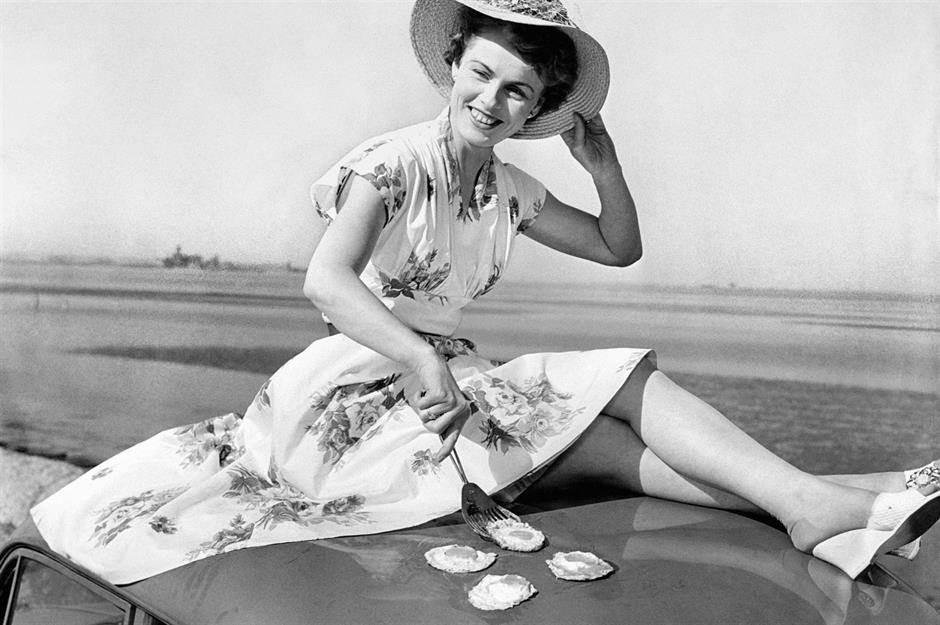
Inflation affects everything, from rising rail prices to shrinking savings. To calculate inflation, the Office for National Statistics (ONS) created the consumer price inflation basket of goods and services. It’s an ever-evolving collection of everyday essentials – and the odd luxury – that the ONS uses to measure price changes. But what’s been in the basket in the past?
Read on as we look back at almost 80 years of British history via this indicator of our changing tastes.
1947: The beginning of the basket
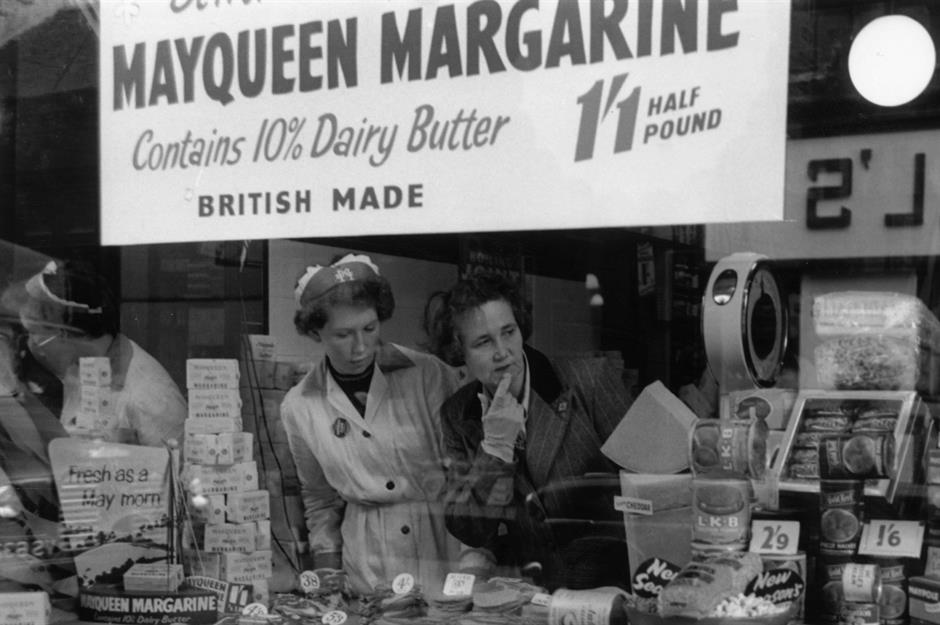
Although inflation had been calculated since the First World War, the Government first assembled a basket of goods that it could measure in 1947. The first basket, like 1947 Britain, was very different to today. It was an age of austerity, with many items still rationed after the war, and the basket reflects this, featuring dried milk, margarine and corned beef (which stayed on the list until 2005).
1947: A very different time
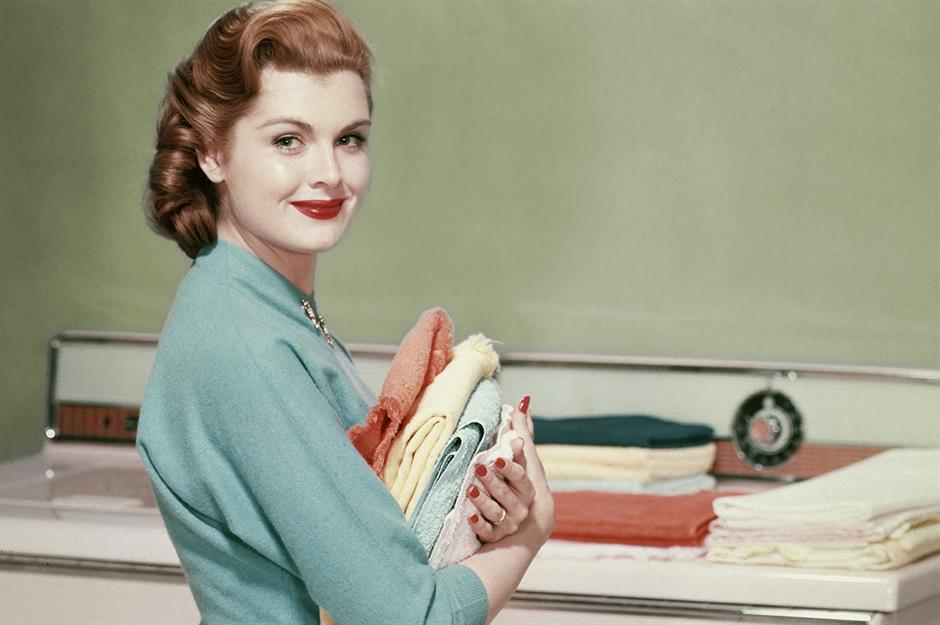
It’s easy to forget just how much has changed since the first inflation basket was published. Instead of the washing machine or dryer, you had the ‘galvanised household bucket’ and clothes mangle; the washing machine didn’t appear in the basket until 1956. Health food meant cod liver oil, and comfort meant sleeping on a hair mattress.
Sponsored Content
1947: A steady fuel?
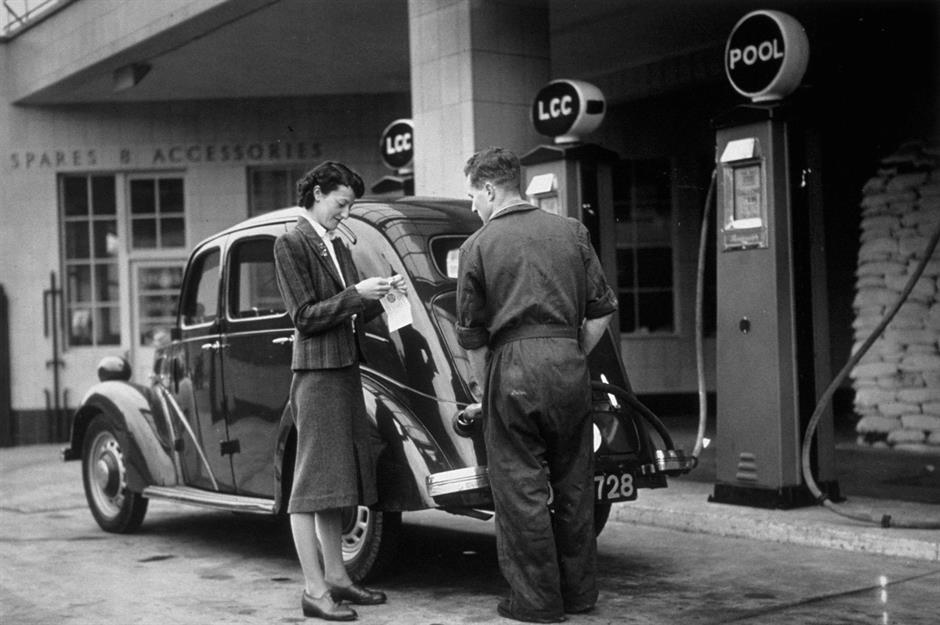
It’s not only the items in the inflation basket that are interesting; the changing prices are too. Petrol has always been in the basket and in 1947 cost just 2p a litre. Adjusted for inflation, that’s equivalent to around £1 today. According to the RAC, the average cost of a litre of unleaded in the UK today is £1.32.
1947: Cleaning up
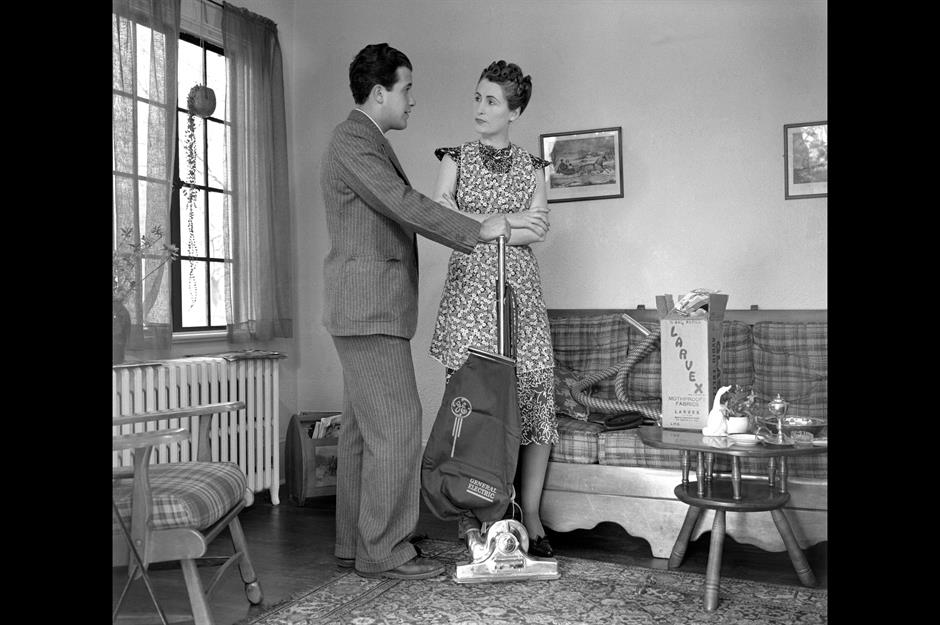
Even in the 1947 basket you can see the impact of developments in technology and society. Take the vacuum cleaner. Although it was invented before the war, it became more available and necessary as middle-class households could no longer afford to employ servants. Household gadgets also gave women more free time, enabling them to take a more active role in society and the workforce.
1947: Room for a little music
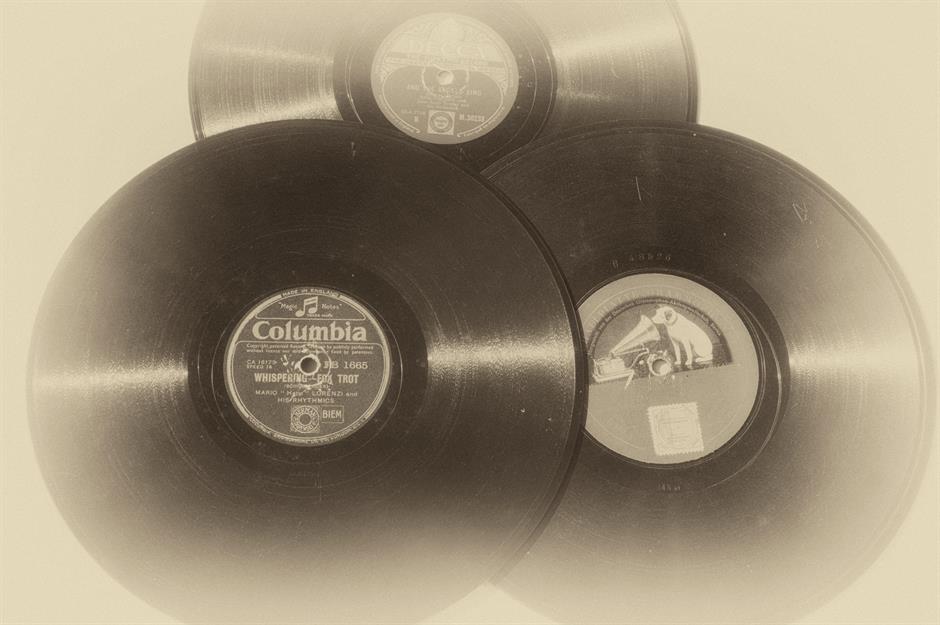
Music and ways to play it have always been part of the inflation basket. Despite the gramophone being around since the turn of the century, it still ruled the roost when the first basket was put together in 1947. Also on the list was the wireless licence; the BBC was established in its current form in 1927.
Sponsored Content
1962: Something fishy

There’s not much evidence of the Swinging 60s in the inflation basket. Instead, you have the humble fish finger, introduced in 1962 and, incredibly, still in the basket today. Fish fingers were first sold in the UK in 1955 by Birds Eye, with herring variants originally trialled before the company opted for cod.
The fishy meal is still a firm favourite, and today Brits eat 1.5 million fish fingers per day, according to Birds Eye. That's the equivalent of 18 per second.
1956: NHS prescriptions
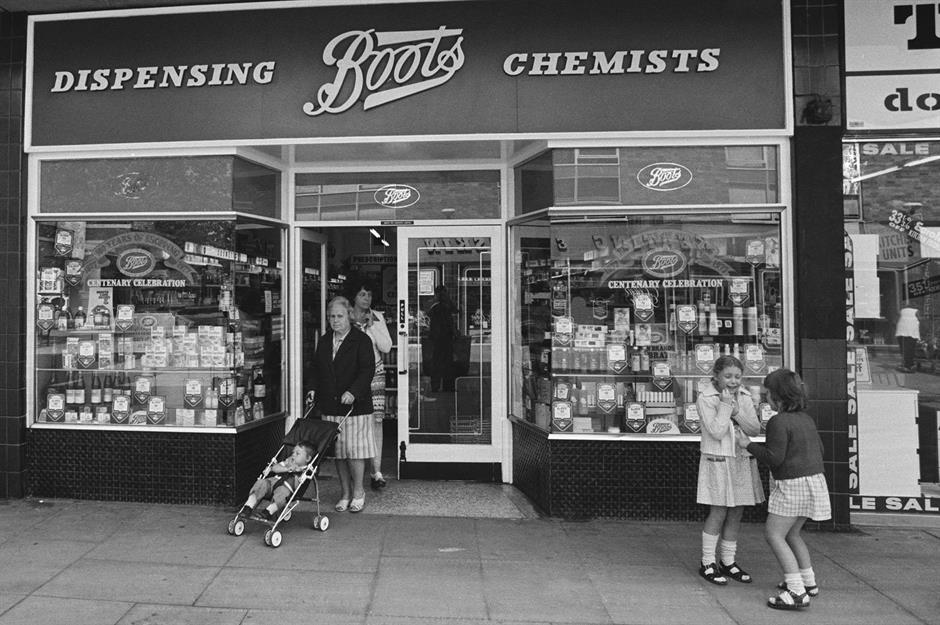
The inflation basket doesn’t just look at household goods: it attempts to account for all sorts of costs including, from 1956, NHS prescriptions. Although prescriptions had been free when the National Health Service was launched in 1948, costs quickly escalated. In 1952, the Conservative government of the day decided to charge one shilling per prescription, with exemptions for children and those on war pensions.
1962: Keeping cool

The refrigerator, which entered the basket in 1962, had been invented 49 years earlier in the USA. Yet in 1948, just 2% of households in the UK had one. By 1959, the figure was still just 13%. But that year, a glorious summer – model Sheila McDonough (pictured) was able to fry eggs on her car – made the case for a fridge obvious. Just a few years later, the refrigerator was in the basket.
Sponsored Content
1962: Crisps make the cut
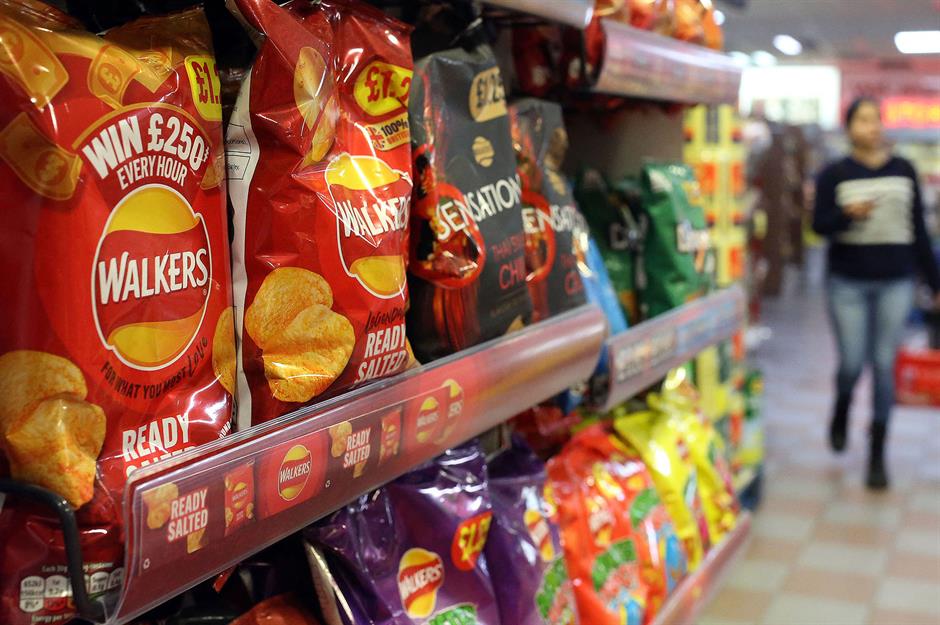
Another surprisingly late arrival to the UK's inflation basket was crisps, which only made the cut in 1962. There was only one flavour available – plain – until Irish crisp company Tayto pioneered cheese & onion and salt & vinegar flavours in the 1950s. Since then, the range of flavours has been ever-expanding.
1974: An instant Smash
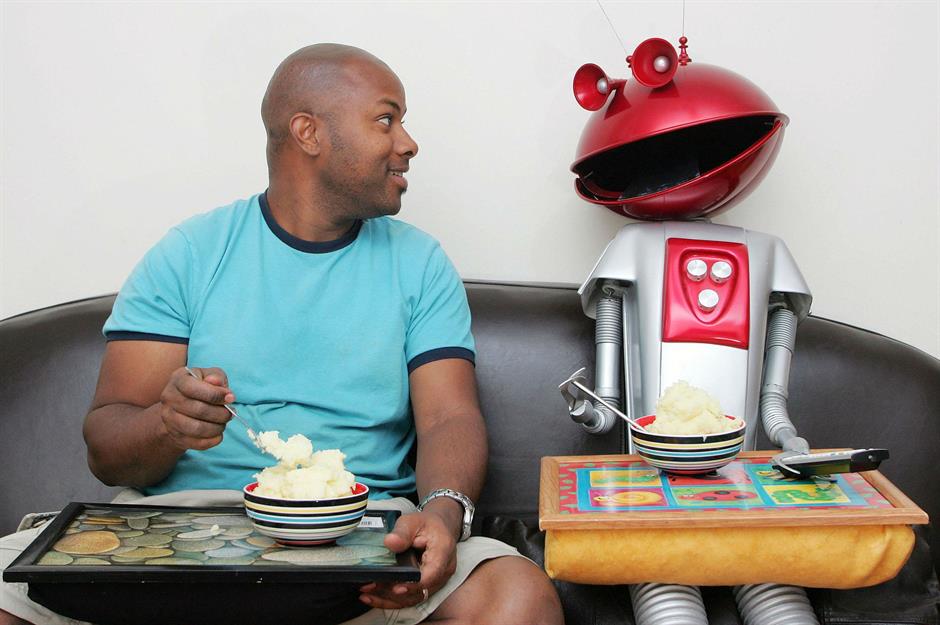
In a prelude of things to come, Smash, a brand of instant mashed potatoes, was one of the first convenience foods on the market when it entered the basket in 1974. Smash was made famous by a series of TV adverts in the 1970s, where a family of Martians mocked humans for preparing mashed potato, with the tagline ‘For Mash Get Smash’. It was replaced by frozen oven chips in 1987.
1976: Changing sounds
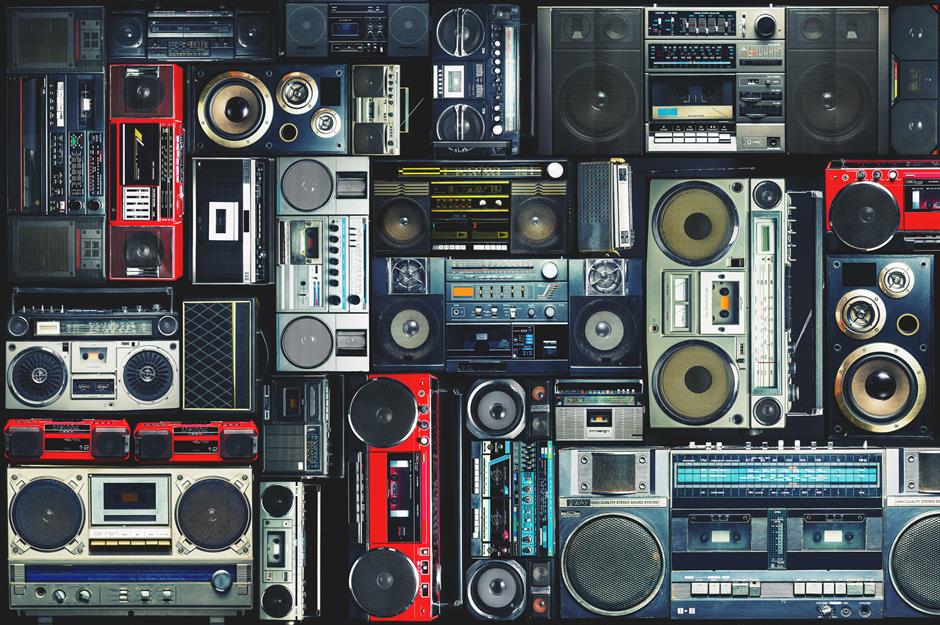
The vast collection of vinyl records, cassettes, minidiscs and CDs sitting in UK attics testifies to the rapid changes in how we listen to music, and the inflation basket has tried to keep up with these. The cassette recorder was included in 1976, the CD player in 1997 and the MP3 player in 2003.
Sponsored Content
1980: Duvet days

What on earth did we do before the duvet? The fact that the 'continental quilt', as it was known, only took off in the 1970s – entering the basket in 1980 – is even more mysterious given that fewer households had central heating then. Habitat founder Sir Terence Conran first started selling duvets in 1964, having noticed them in Sweden. They were marketed as the '10 second bed' as they made a bed much easier to make than the previous layers of sheets and blankets.
1987: Health food
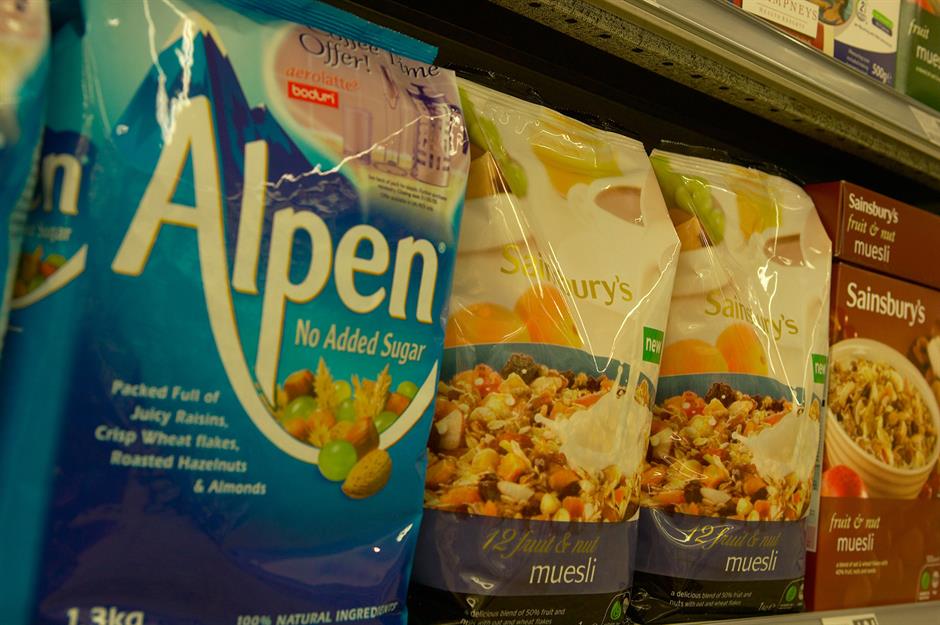
Much of the food in the first inflation basket was of dubious health benefit: think butter, meat, condensed milk and boiled sweets. But as Britain’s tastes have got healthier, so has the basket. Muesli and skimmed milk were included in 1987, fromage frais in 1993 and even diet drink powder in 2003.
1987: Microwave
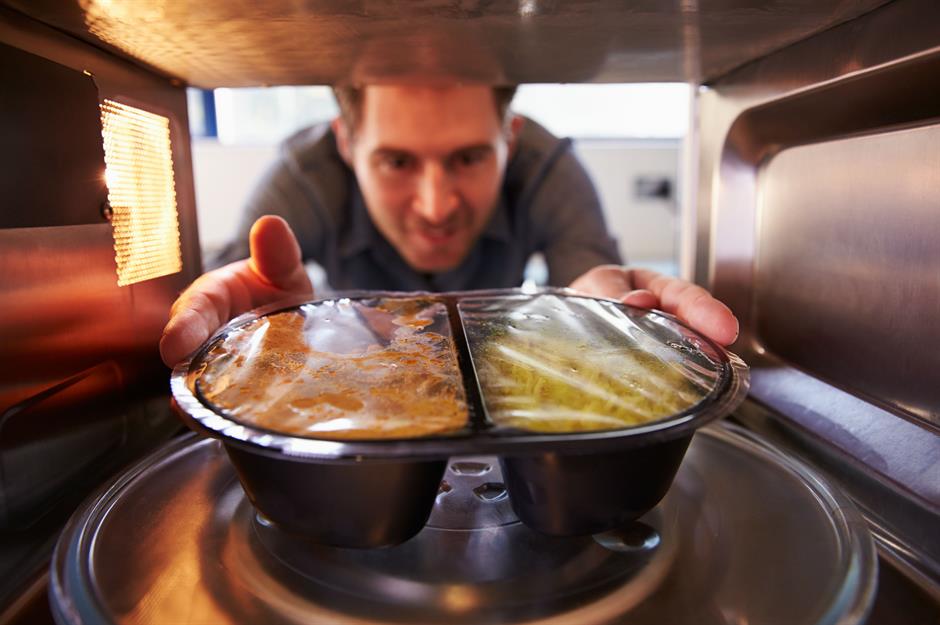
It’s been a long haul for the humble microwave. Way back in 1933 at the Chicago World Fair, the manufacturing corporation Westinghouse succeeded in cooking food in between two metal plates emitting microwaves. The first microwave oven came along in 1947, a 340-kilogram, water-cooled monster, but the UK had to wait until 1974 for the first microwave oven to be sold and it was only included in the inflation basket in 1987.
Sponsored Content
1987: A good night in
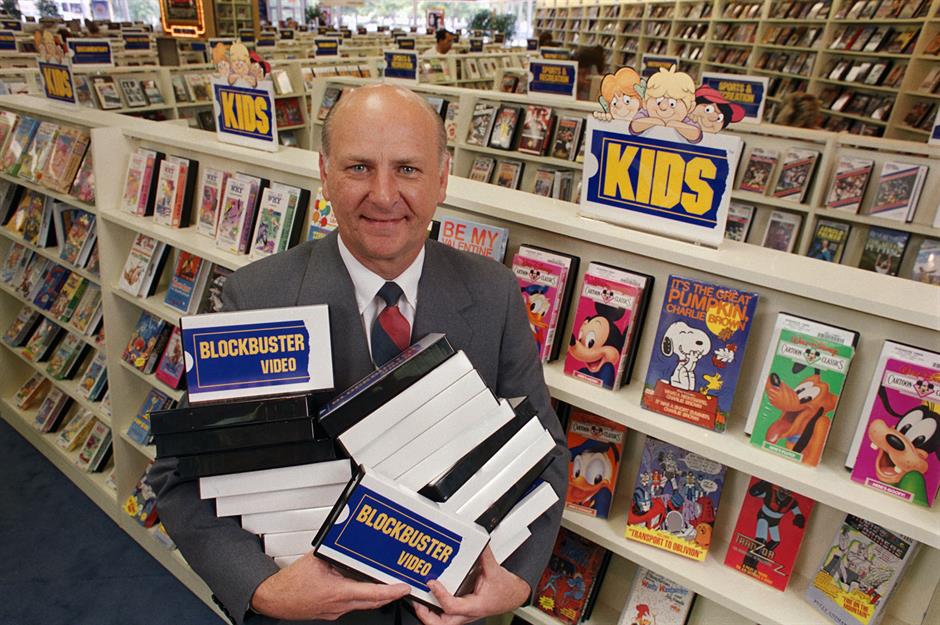
Before the dawn of streaming services, a film night at home usually meant a quick trip to the local Blockbuster. Video rentals made the inflation basket in 1987, having had to wait for VHS video recorders, which also made 1987’s basket, to spread to enough British households. Video on demand services and digital subscriptions are now part of the basket.
1993: Beauty and the basket

The somewhat vague category of ‘cosmetics’ has been in the basket since its second incarnation in 1952, along with hair cream. Mascara finally made the cut in 1993 and today’s basket also includes liquid foundation, nail varnish, moisturising lotion and even the ‘basic manicure’.
1993: Foreign holidays

Did people not go on foreign holidays before 1993? The fact that foreign holidays didn’t make the inflation basket until 1993 bears more relation to the difficulties of measuring these costs than to public tastes. Many Brits have been escaping for some Mediterranean sun since the 1970s.
Sponsored Content
1993: Computer games
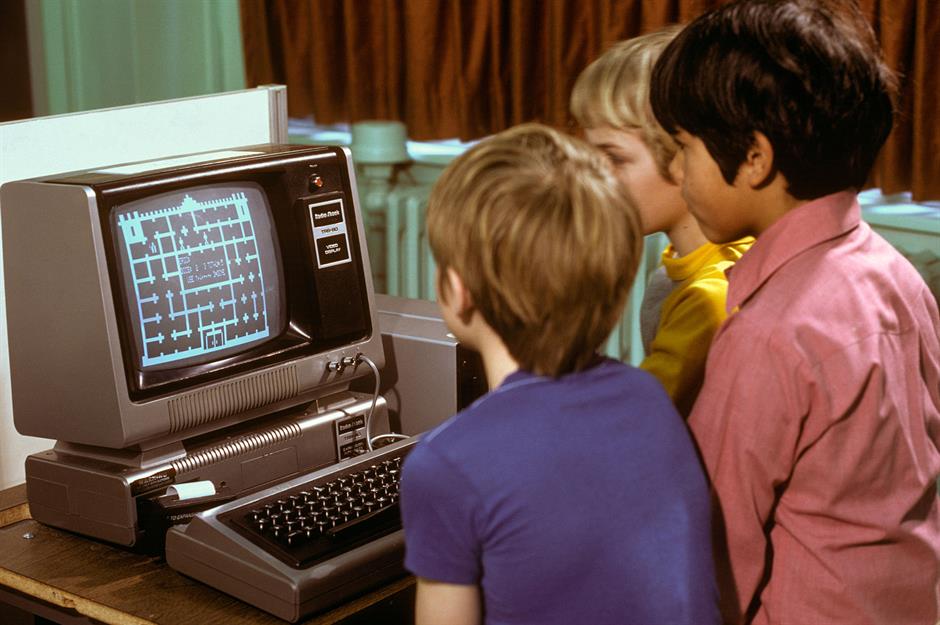
The early 1990s also saw the inclusion of computer games into the inflation basket. While many games released then have since disappeared from memory, popular releases that year included Mortal Kombat II, The Legend of Zelda: Link’s Awakening and Super Mario All-Stars.
1998: Going mobile
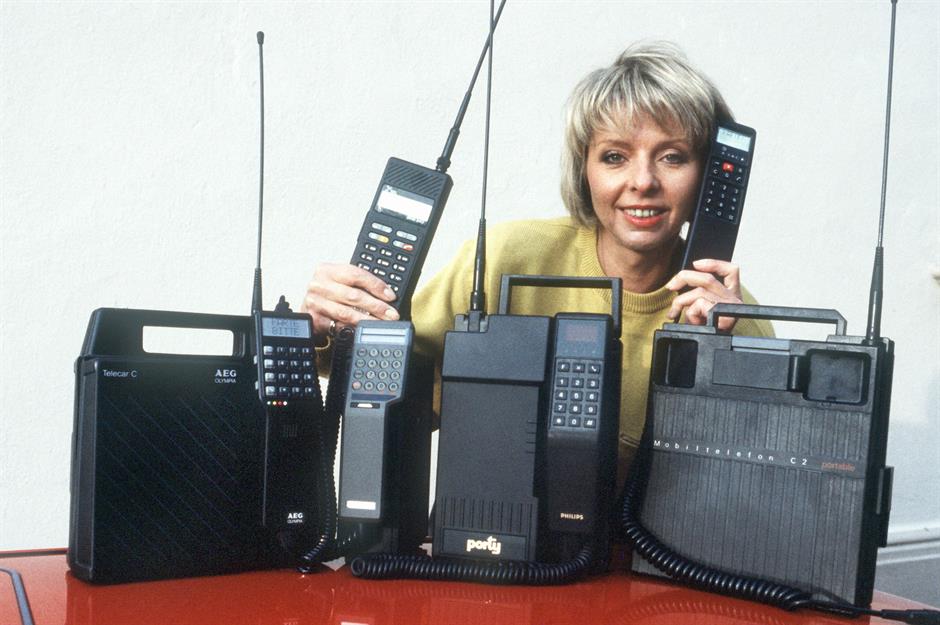
Sometimes, the inclusion of an item in the inflation basket doesn’t quite do it justice. Mobile phone charges began to be tracked in the 1998 basket, but the mobile has changed our lives in countless other ways with the demands of constant communication. And that was all before the smartphone came along, which was added to the list in 2011.
2005: Chicken nuggets
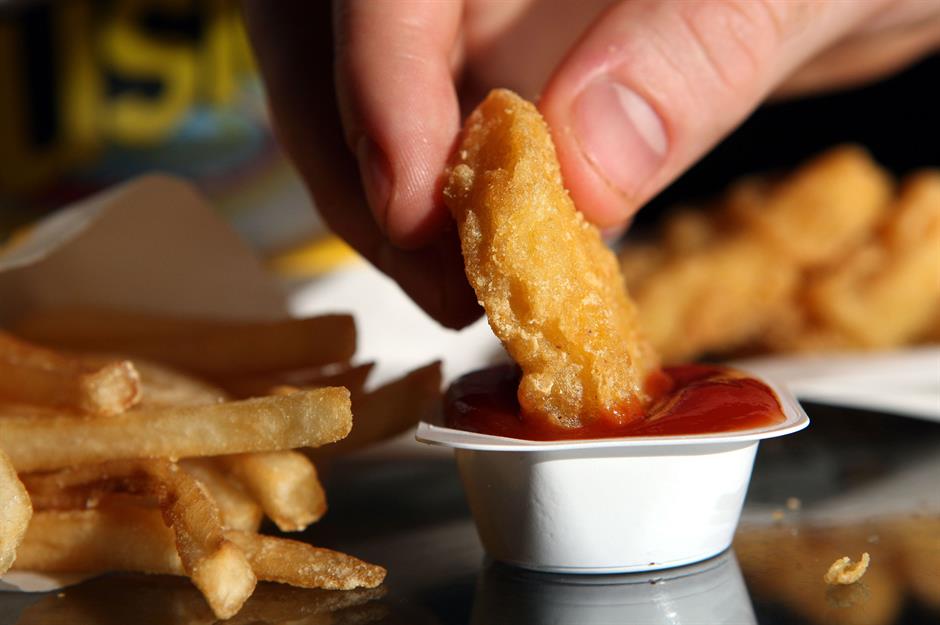
A favourite with children – and increasingly adults – the new millennium saw official acknowledgement of the chicken nugget in 2005.
Ironically, that was the same year Jamie Oliver launched his anti-junk food campaign ‘Feed Me Better’, although the main target was the chicken nugget’s poor relation, the turkey twizzler.
Sponsored Content
2011: The price of love

Although online dating is seen as a relatively recent social phenomenon, computer dating was invented as far back as 1965, when a five-tonne IBM computer was used to crunch student survey responses and suggest ideal matches. With services like Match.com harnessing the popularity of the internet, dating fees eventually found their way into the basket in 2011.
2015: Sweet potatoes
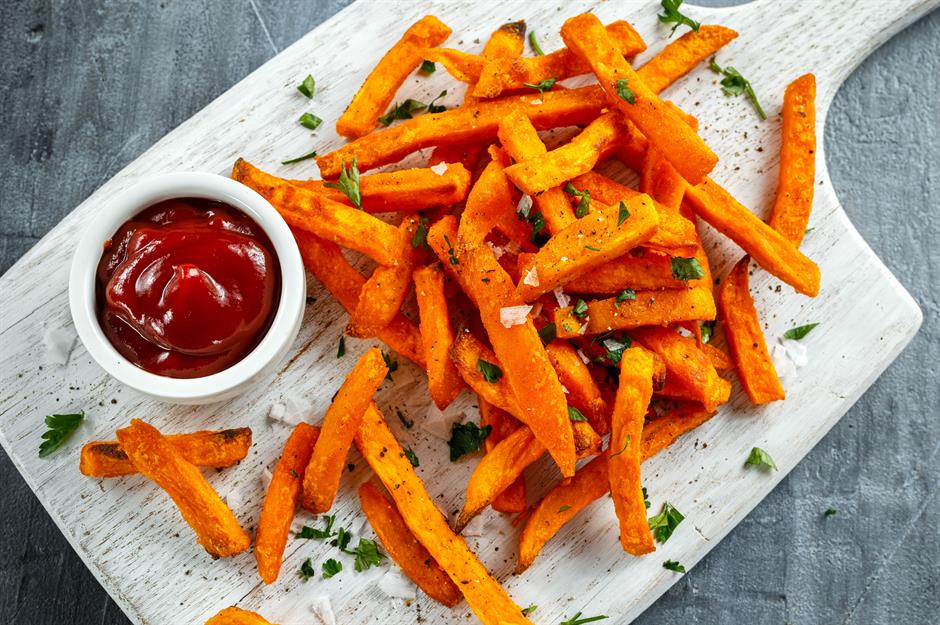
The ever-growing number of food items has become increasingly exotic. Bananas have always been a part of the inflation basket, but many other items are more recent. Brie was included in 1987, olive oil in 2007, garlic bread in 2010 and the sweet potato in 2015.
2019: Portable speakers and peanut butter
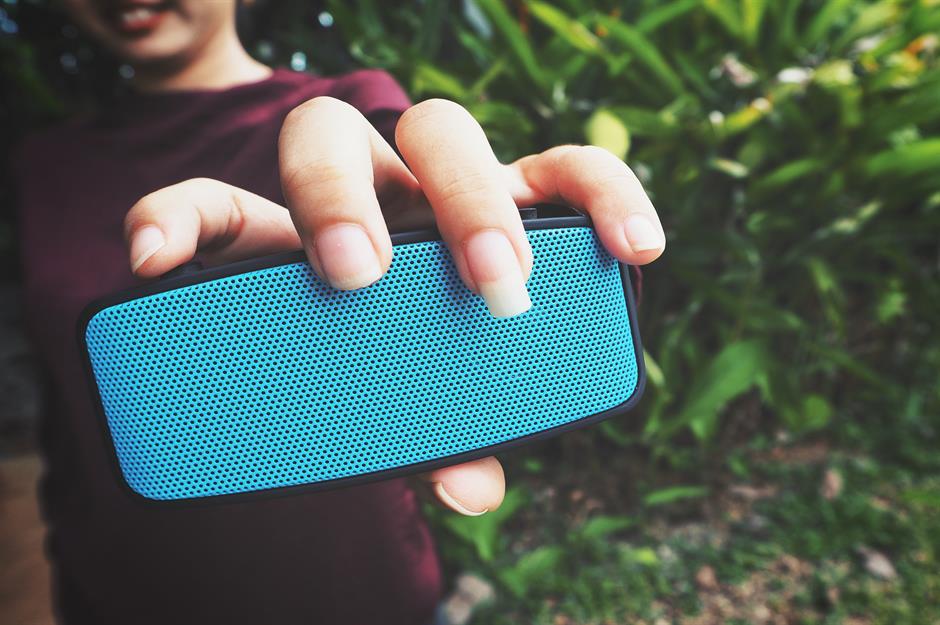
The year 2019 marked the end for the hi-fi system, which has largely been replaced by the portable speaker. Also out were envelopes with new additions including peanut butter, popcorn and the electric toothbrush.
Sponsored Content
2022: Hello meat-free sausages, goodbye men's suits
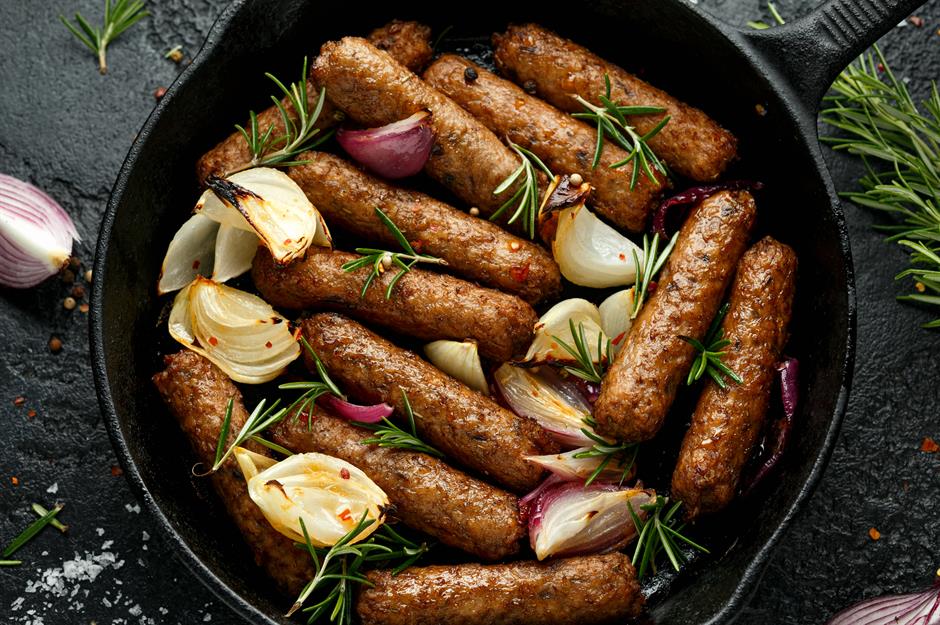
As the COVID-19 pandemic changed our lifestyles overnight, the inflation basket changed to reflect our newfound priorities, heralding the addition of hand sanitiser and antibacterial surface wipes. Other additions in 2022 included pet collars, a testament to the 3.2 million pets bought or adopted by Brits during the pandemic. Meat-free sausages also made the list, while men's suits, doughnuts and coal were removed.
2025: VR headsets, yoga mats and pool sliders

The latest additions to the inflation basket include VR headsets, yoga mats, men's pool sliders and pulled pork. These items have replaced gammon joints and printed newspaper adverts, an evolution that Stephen Burgess from the Office of National Statistics has described as demonstrating “the desire for convenience amidst our busy lifestyles [...]. Consumers are choosing easier options in the kitchen, so oven-ready gammon joints make way for the quicker choice of pulled pork.”
Now discover 29 childhood toys that could be worth a fortune
Updated by Alice Cattley
Comments
Be the first to comment
Do you want to comment on this article? You need to be signed in for this feature